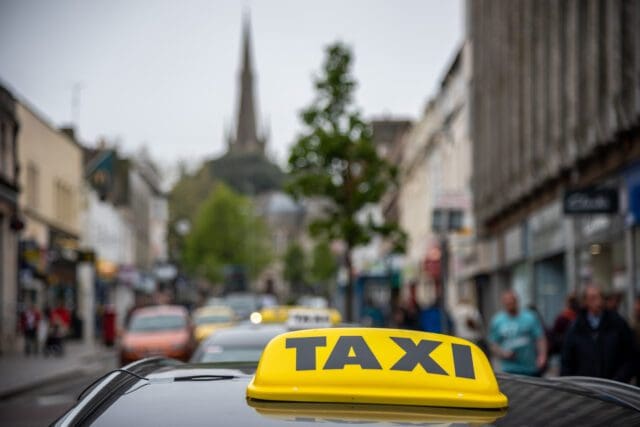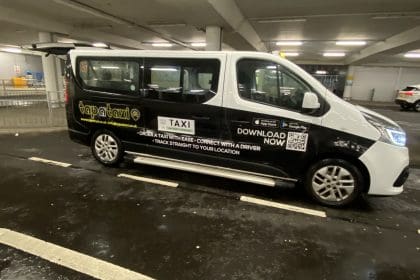Safety is the priority when it comes to driving a taxi. Vehicles have to undergo thorough checks and maintenance, and drivers have to be fit and proper people who keep up to date with regulations.
This is because they can be transporting vulnerable people such as children and women on their own, and some truly horrific crimes have been committed under the camouflage of taxis and even by taxi drivers.
Criminal records
So it is a surprise that 90 taxi licences have been granted to violent offenders in the past two years – and the family of a young Swindon woman murdered by a taxi driver wants them banned from the trade.
The Swindon Advertiser reports that Sian O’Callaghan was killed by Christopher Halliwell after getting into his taxi in the town on March 19, 2011. He was jailed for life in October, 2012, and later received a whole-life sentence for the 2003 murder of another Swindon woman, Becky Godden.
Sian’s mother, Elaine Pickford, called for urgent action following new research which shows that an estimated 90 taxi licences were granted to violent offenders since August, 2022.
She and her family have been working with the Suzy Lamplugh Trust charity which carried out the research and was set up to reduce abuse, aggression, and violence, with a specific focus on stalking and harassment.
Saskia Garner, head of policy and campaigns at the trust, said: “While these driver numbers might seem low, we strongly believe that one incident of harm or violence is one too many.
“We’ve been working with Elaine for around eight years, calling on the government to tighten the licensing laws, and we’re disappointed more hasn’t been done in that time.”
A spokesperson for the Department of Transport told the Advertiser: “Keeping passengers safe is the top priority, and drivers in England are already subject to the highest-level background checks.
“Before deciding to issue a licence, authorities must consult a national database which logs if someone has had a licence refused, suspended, or revoked.
“We are also currently considering further options to improve safety around taxi licensing.”
Slipping through the net
As well as granting licences to people with convictions for violence, there are also concerns that out-of-town licensing is allowing people to hide their past.
Rotherham MP Sarah Champion told the BBC that following the horrific child sex abuse scandal in the town 10 years ago, tough regulations were introduced to vet taxi drivers.
She said: “The frustration is that in Rotherham we have probably the best regulation in the country and we’re trying to get that adopted nationally.
“We needed it because a lot of children who were being exploited were being raped in taxis or being transported from one children’s home to the abuse location through a taxi.
“The problem is those regulations are only set by the licensing authority so unless we get national minimum standards then drivers can go to a different local authority with different regulations and still drive in Rotherham.”
As part of the town’s new licensing regulations, a one-year private hire licence is £210 and applicants must sit a child and vulnerable adults safeguarding test with a 100% pass rate. They also have to fit CCTV cameras to their vehicles. However, in Wolverhampton, the BBC reports that a one-year licence costs £49 and there are no CCTV requirements.
Mockery
Rotherham drivers also shared their concerns. Lee Ward, a Unite the Union representative for South Yorkshire, said: “Unfortunately a lot of taxi drivers around here were tarred by the same brush as those who were criminals.
“These are innocent drivers who were all of a sudden hit by so many extra regulations, training, CCTV.
“They’ve all gone through that – with open arms and a glad heart – just to sit next to a taxi who has a license in another authority 100 miles away, with officers who never come to Rotherham or Sheffield to check their drivers. It just makes a mockery of what they are trying to do.”
A City of Wolverhampton Council spokeswoman said: “The council would refute any suggestion of prioritising earning money over passenger safety.”
However, its audit and risk committee agreed that the “likelihood of a serious issue taking place” increases in line with the number of licenses issued.
It was told: “There has been serious child sex exploitation scandals revealed in Rotherham and Telford, which involved taxi drivers. Licensed vehicles provide a ‘camouflage’ which allows vehicles to traffic vulnerable people, as well as the offer of free trips for grooming. It is the service’s goal to minimise risks by all legal means.”
While licensing authorities do revoke drivers’ badges, it is a concern that 90 have been issued to people with criminal convictions for violence. With such high risks, a national standard for vetting drivers has to be implemented and to stop people slipping through the net.
Otherwise, the tragic cases of Sian and Becky, as well as the horrific abuse in Rotherham, could be allowed to happen again in any other town or city.




